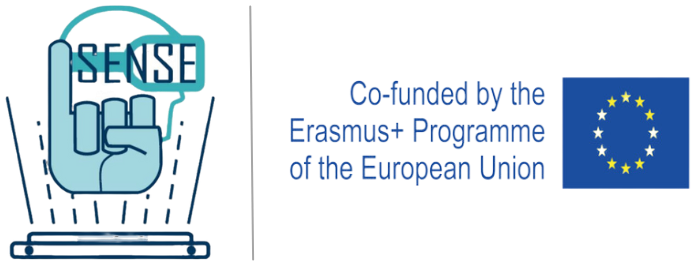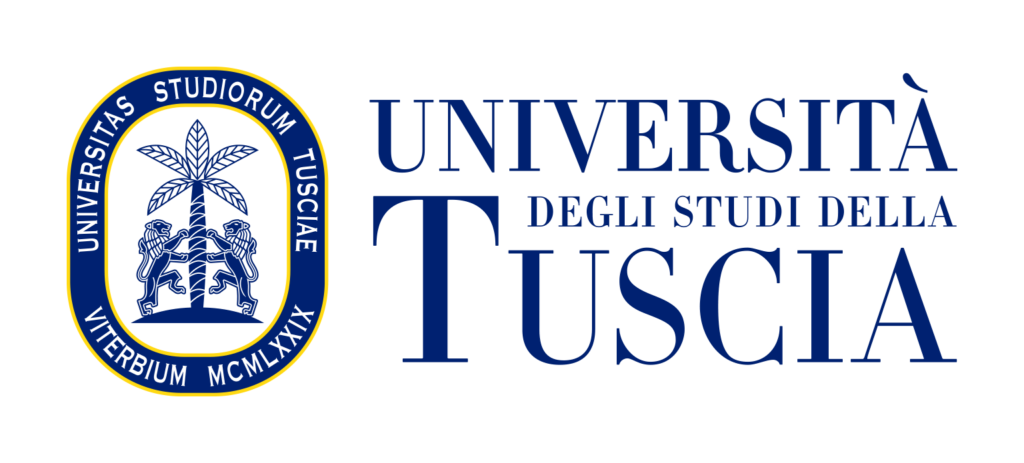
UNIVERSITÀ DEGLI STUDI DELLA TUSCIA
Dirección: Via S.M. in Gradi 4 – 01100 Viterbo (Italy)
E-Mail: isense@unitus.it
Website: www.unitus.it
The University of Tuscia is located in Viterbo, central Italy. It was founded in 1979 and is a multidisciplinary Italian public university that claims a prominent position among the best research and teaching centres in Italy and Europe. It represents a great resource for local development and for the production of innovative processes involving both research and small and medium-sized enterprises (SMEs). The University has about 700 employees, equally divided between technical-administrative staff and researchers and professors. UNITUS has bilateral agreements with partners in Europe, USA, Asia and South Africa for the exchange of academic staff, PhD students and post-doc researchers, further enriching its professionalism and collaborations. It has participated in the past and still participates in the Erasmus and Erasmus Plus mobility programmes. It is one of the four Italian universities that adhere to the Global Compact, one of the major initiatives aimed at promoting a sustainable global economy, respectful of human and labour rights, environmental protection, and the fight against corruption.
UNITUS comprises six Departments:
- Department of Agricultural and Forestry Sciences (DAFNE).
- Department of Ecological and Biological Sciences (DEB).
- Department of Economics, Engineering, Society and Business Organization (DEIM).
- Department of Innovation in Biological, Agri-Food and Forestry Systems (DIBAF).
- Department of Linguistic-Literary, Historical-Philosophical and Legal Studies (DISTU).
- Department of Humanities, Communication and Tourism (DISUCOM).
The University of Tuscia also carries out its research, development, and technology transfer activities through 8 interdepartmental University centres and 7 interuniversity centres. These Centers boast advanced fine analysis equipment capable of covering all the analytical needs for carrying out innovative research projects. At the University of Tuscia there is also the Industrial Research and Development (R&D) sector which is supported by a dedicated office. Tuscia has been awarded numerous grants at national and international level on the topic inclusion.
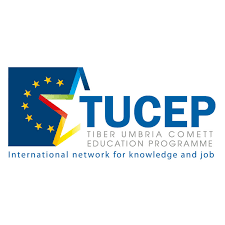
TUCEP – TIBER UMBRIA COMETT EDUCATION PROGRAMME
Dirección: Via Martiri 28 Marzo, 35 – 06219 Perugia (Italy)
E-Mail: tucep@tucep.org
Website: www.tucep.org
TUCEP is a no profit Association of twelve Italian Universities and numerous Enterprises, and Public Authorities; it was created in 1992 under the EU COMETT Programme, the Community Programme on cooperation between universities and enterprises regarding training in the field of research, innovation and technology. TUCEP credited by Umbria Region for the realization of higher, continuous and permanent training and it is certified according UNI EN ISO 9001:2015 standards.
The mission of TUCEP is to foster and develop collaboration between universities and the world of work through the implementation of research and training projects aimed at promoting innovation and quality in education and training, promoting social inclusion, entrepreneurship and European values at regional, national, European level.
In order to achieve the institutional objectives, TUCEP is engaged in fostering the acquisition, updating and assessment of key and vocational competences by young people and adults in order to enable their entry or re-entry into the labour market. In addition, the association is committed to carrying out pilot projects at European, national and regional level aimed at testing innovative approaches and good practices in the field of training.
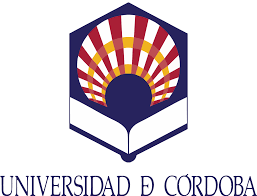
UNIVERSIDAD DE CORDOBA
Dirección: Avd. Medina Azahara, 5 – 14071 Córdoba (Spain)
E-Mail: informacion@uco.es
Website: www.uco.es
La Universidad de Córdoba (UCO) es una institución de educación superior y investigación sin fines de lucro establecida en 1972. Se encuentra a la vanguardia de la investigación en Andalucía (España) y es reconocida entre las principales instituciones de investigación a nivel nacional. La UCO tiene un gran recorrido en Ciencias Agrícolas y Ciencias de las Plantas y los Animales. Con un latente compromiso con la sociedad, la UCO promueve la inclusión, la innovación, la investigación, el desarrollo tecnológico y la transferencia del conocimiento como motores del progreso social y económico.
La UCO cuenta con 193 unidades de investigación y 2.200 empleados que cubren diversas disciplinas, desde Humanidades y Ciencias Jurídicas y Sociales hasta Ciencias de la Salud y Ciencia y Tecnología. Además, está equipada con instalaciones de investigación de vanguardia en su Campus de Rabanales. También cuenta con invernaderos, una estación meteorológica y una Unidad Central de Experimentación Animal.
La UCO ofrece una amplia gama de servicios en TIC y tecnologías audiovisuales, así como en educación y formación. Además, tiene una sólida experiencia en la gestión e implementación de proyectos internacionales.

UNIVERSITÄT KLAGENFURT
Dirección:UNIVERSITAETSSTRASSE 65-67 – 9020 Klagenfurt (Austria)
Website: http://www.aau.at
Since it was founded in 1970, the Universität Klagenfurt (AAU) has become firmly established as the leading institution of academic education in the Austrian province of Carinthia. Due to its location near the border of Italy and Slovenia, it is also called the «Alps-Adriatic University».
AAU has approx. 13,000 students & 1,500 members of staff who learn/teach, work and conduct research. AAU is also one of the largest providers of academic continuing education in Austria.
The «Faculty Centre for Sign Language and Deaf Communication» (ZGH) aims to improve the situation of deaf and hard-of-hearing people concerning education and job chances. It is the only university research centre of its kind in Austria. There are currently 8 collaborators (4 deaf, one hard-of-hearing and 3 hearing).
ZGH has special experience in:
- sign language teaching and research;
- raising Deaf awareness;
- multimedia courses for language teaching;
- vocational materials for deaf people;
- sign language videos;
- online dictionaries for sign languages.

STOWARZYSZENIE ROZWOJU "PITAGORAS"
Dirección: road św. Rocha 41B/7 – 35-330 Rzeszów (Poland)
E-Mail: stow.pitagoras@gmail.com
Website: www.pitagoras.org.pl
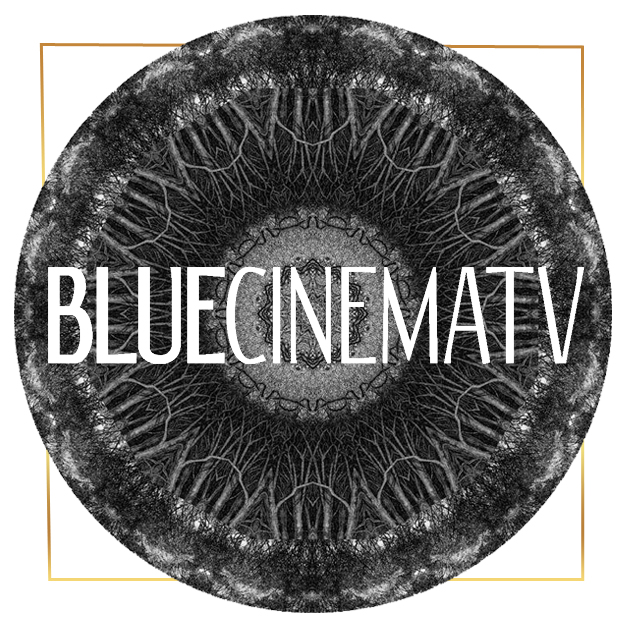
BLUE CINEMA TV SRL
Dirección: VIA CARLO ARMELLINI 16 – 00153 Rome (Italy)
E-Mail: info@bluecinematv.com
Website: https://www.bluecinematv.com/
Blue Cinema TV was founded in 1999, heir to a family tradition started in 1929. Its activity is focused on Film Production and Research and Development of New Immersive Visual Technologies. It has produced first feature films of young authors gaining recognition from the Italian Ministry of Culture and major international film festivals and visibility thanks to TV channels (Rai, Telewizja Polska) and the leading streaming platforms (Amazon Prime Video, Apple TV, Google Play). For a long time, the company has embarked on a path leading to the combination of artistic expression and technological innovation: the European patent OLOSTM, the process for reproducing life-size interactive human beings, which is mainly applied in the fields of education and culture. On the other hand, the collaboration with universities and research institutes has stimulated the research and development process that led to obtaining two other patents: HITM – Human Interface, which simulates human presence in the real environment, and I-CINEMATM, which aims to experimenting innovative solutions of interactive cinematography.

FACHHOCHSCHULE DES MITTELSTANDES (FHM)
Dirección: RAVENSBERGER STRASSE 10G – 33602 BIELEFELD (Germany)
Website: www.fh-mittelstand.de
The FHM is a private, non-profit and state-approved University of Applied Sciences. The FHM has been founded in 2000 by medium-sized enterprises and educational institutions. Since then it has developed into one of the most successful private universities in Germany with a strong focus on the needs of small and medium-sized enterprises.
The FHM’s goal is to provide students with necessary theoretical and hands-on skills for their later business career. The FHM’ concept focuses on practical career orientation, individual tutoring, and small group sizes.
At present, there are approx. 5100 students in BA, MA and MBA programs, 100 in doctoral programs, and 630 in scientific further education studying at the FHM. The programs on offer include 20 full-time, 44 part-time, 5 dual study programs, 4 distance education programs , 3 further scientific education and 1 doctoral program in cooperation with the British universities of Gloucestershire and Worcester, and 14 programs in the field of scientific further education. Study programs cover 3 main areas: Economics; Media & Communication; HR, Health and Social Work.
On an ongoing basis, FHM develops ideas and concepts for research projects with a national and international focus. The FHM is currently involved in 33 projects and the topics of entrepreneurship, sustainability, urban and rural & mobility, digitalization/security, media/virtual reality, education/skills/personnel, health/nursing form focal points in this context.
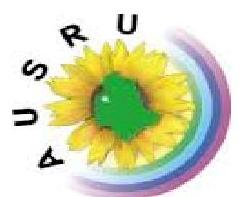
ASSOCIAZIONI UNITE DEI SORDI DELLA REGIONE UMBRIA - AUSRU
Dirección: Via Campo di Marte, 9 – 06124 Perugia (Italy)
E-Mail: sordi.umbria@libero.it
Website: www.beta.pgcesvol.com/ausru
AUSRU is a no-profit association aimed at promoting the social inclusion of Deaf people. At this purpose, the association organise meetings and gatherings, cultural, sporting, competitive activities, recreation and leisure, games, courses, seminars, studies and research for the Deaf and hard of hearing people who struggle for the recognition of the most natural and important right to humans, which is the freedom (of being, of thinking, of choose); to tackle the lack of communication and to fight against the marginalization, especially of young people. The Association provides assistance and support in insurance, taxation, fiscal and legal issues, by volunteer services and interventions, for wellbeing, honour and concept safety of Deaf people. The Association offers opportunities to hearing people who are learning Italian Sign Language to practice language and socialise with Deaf people in order to get to know Deaf culture better. At this purpose, the activities organised by AUSRU are open, not only to the Deaf community, but to the people who want to get closer to the Deaf community and its culture.
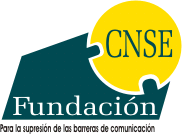
FUNDACÍON CNSE FOUNDATION FOR THE SUPPRESSION OF COMMUNICATION BARRIERS
Dirección: C/ Islas Aleutianas 28 – 28035 Madrid (Spain)
E-Mail: fundacion.cnse@fundacioncnse.org
Website: www.fundacioncnse.org
La FUNDACIÓN CNSE PARA LA SUPRESIÓN DE LAS BARRERAS DE COMUNICACIÓN es una entidad de ámbito estatal con personalidad jurídica propia, sin ánimo de lucro y asociada a la Confederación Estatal de Personas Sordas (CNSE). La FCNSE lleva 25 años trabajando para mejorar la accesibilidad de las personas sordas a todos los niveles de la sociedad, y para promover el desarrollo de proyectos que mejoren la calidad de vida de este colectivo. FCNSE tiene como objetivo realizar I+D para contribuir al desarrollo y fortalecimiento de la competitividad de las empresas, mejorando la calidad de vida y la accesibilidad social de las personas sordas.
Las actividades de la Fundación CNSE son:
- Investigación en lengua de signos española
- Accesibilidad y tecnología
- Difusión y sensibilización de temas relacionados con las personas sordas y la LSE
- Fomento de la lectura entre las personas sordas
Formación:
- Innovación tecnológica
- Apoyo a las familias y a la educación
- Centro de documentación
La FCNSE promueve la accesibilidad y el uso de las tecnologías entre sus usuarios asociados a la CNSE, que suman más de100.000 usuarios sordos de lengua de signos y 500 intérpretes registrados de lengua de signos. Además somos miembros de la Unión Europea de Personas Sordas (EUD), que es la única organización supranacional que representa a las personas sordas a nivel europeo y es una de las pocas ONG que representa a asociaciones de los 28 Estados miembros de la UE, además de los países de la AELC: Islandia, Noruega y Suiza.
